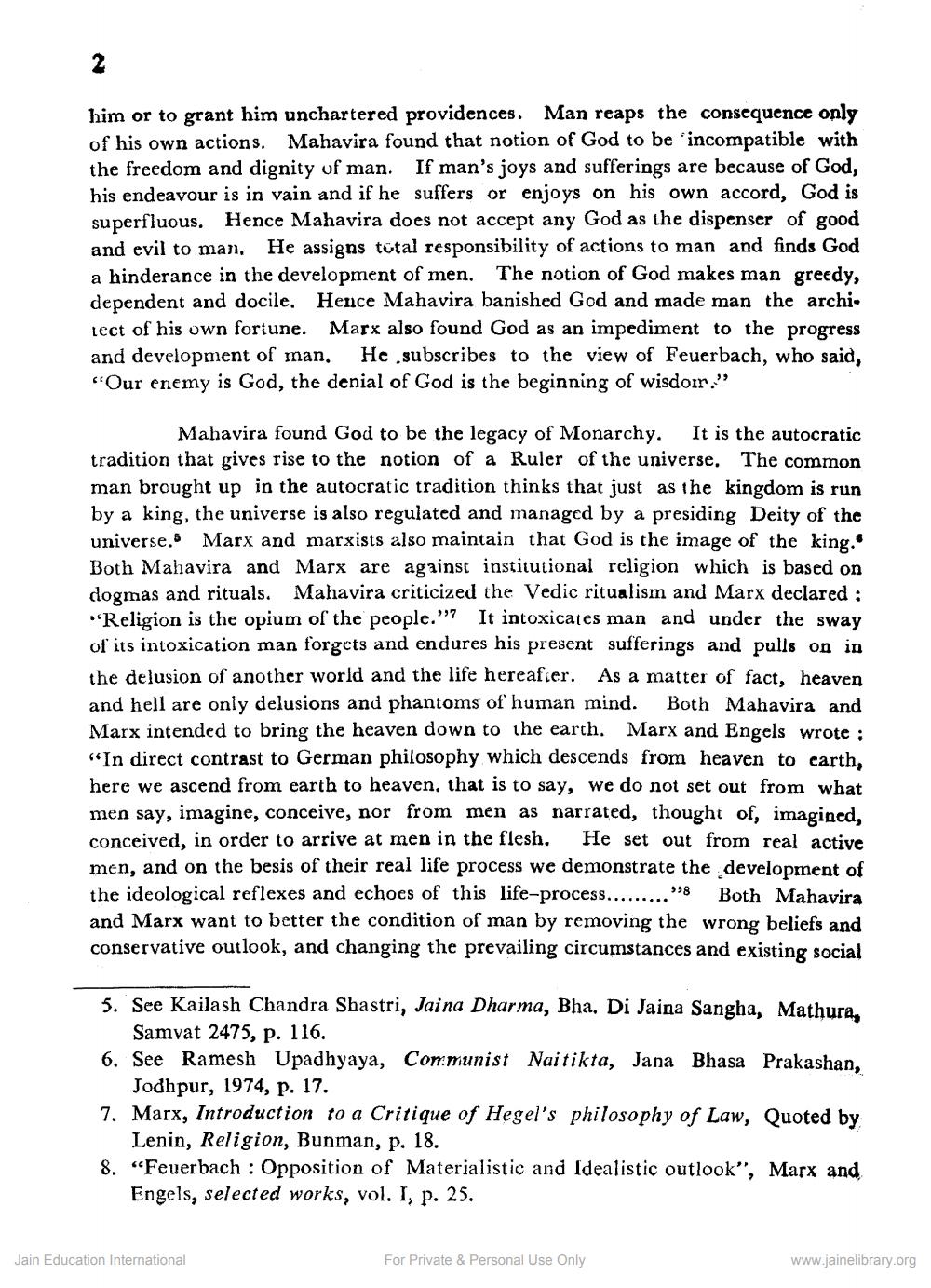________________
2
him or to grant him unchartered providences. Man reaps the consequence only of his own actions. Mahavira found that notion of God to be 'incompatible with. the freedom and dignity of man. If man's joys and sufferings are because of God, his endeavour is in vain and if he suffers or enjoys on his own accord, God is superfluous. Hence Mahavira does not accept any God as the dispenser of good and evil to man. He assigns total responsibility of actions to man and finds God a hinderance in the development of men. The notion of God makes man greedy, dependent and docile. Hence Mahavira banished God and made man the archi tect of his own fortune. Marx also found God as an impediment to the progress and development of man, He subscribes to the view of Feuerbach, who said, "Our enemy is God, the denial of God is the beginning of wisdom,"
Mahavira found God to be the legacy of Monarchy. It is the autocratic tradition that gives rise to the notion of a Ruler of the universe. The common man brought up in the autocratic tradition thinks that just as the kingdom is run by a king, the universe is also regulated and managed by a presiding Deity of the universe. Marx and marxists also maintain that God is the image of the king. Both Mahavira and Marx are against institutional religion which is based on dogmas and rituals. Mahavira criticized the Vedic ritualism and Marx declared: "Religion is the opium of the people." It intoxicates man and under the sway of its intoxication man forgets and endures his present sufferings and pulls on in the delusion of another world and the life hereafter. As a matter of fact, heaven and hell are only delusions and phantoms of human mind. Both Mahavira and Marx intended to bring the heaven down to the earth. Marx and Engels wrote: "In direct contrast to German philosophy which descends from heaven to earth, here we ascend from earth to heaven, that is to say, we do not set out from what men say, imagine, conceive, nor from men as narrated, thought of, imagined, conceived, in order to arrive at men in the flesh. He set out from real active men, and on the besis of their real life process we demonstrate the development of the ideological reflexes and echoes of this life-process...... Both Mahavira and Marx want to better the condition of man by removing the wrong beliefs and conservative outlook, and changing the prevailing circumstances and existing social
5. See Kailash Chandra Shastri, Jaina Dharma, Bha. Di Jaina Sangha, Mathura, Samvat 2475, p. 116.
6. See Ramesh Upadhyaya, Communist Naitikta, Jana Bhasa Prakashan, Jodhpur, 1974, p. 17.
7. Marx, Introduction to a Critique of Hegel's philosophy of Law, Quoted by Lenin, Religion, Bunman, p. 18.
8. "Feuerbach: Opposition of Materialistic and Idealistic outlook", Marx and Engels, selected works, vol. I, p. 25.
Jain Education International
For Private & Personal Use Only
www.jainelibrary.org




